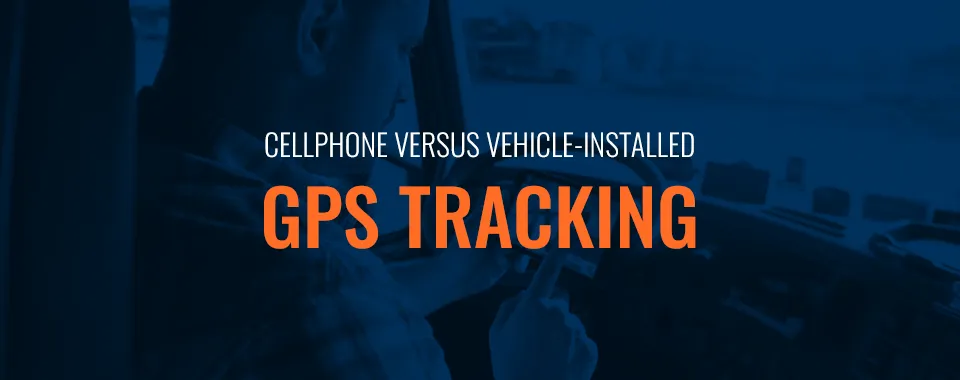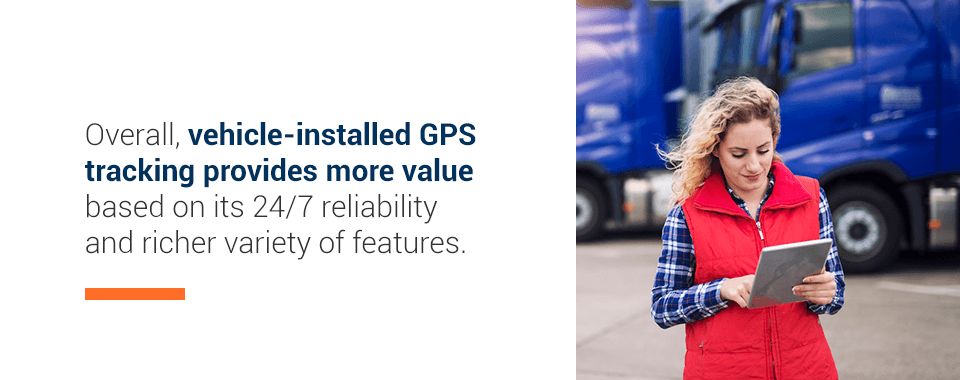

Dozens of industries trust field employees every day to make deliveries, service customers at their homes or businesses, or work across multiple job sites — sometimes all of the above. Vehicle tracking is the way to keep these remote employees accountable and keep business trucking along, but which is a better form of GPS tracking: cellphone or vehicle-based?
While cellphone tracking jumps out as the cheaper and more turnkey solution (“Isn’t there an app for that?”), it lacks the features that are at the core of why you would track your fleet in the first place.
Explore the pros and cons of vehicle GPS trackers versus cellphone tracking to see which fits your business needs and bottom line.
To determine if GPS tracking versus cellphone tracking is better for your bottom line, you must first understand how these technologies work:
Even today, many people assume cellphone tracking and vehicle-tracking technology are interchangeable. They’re not. GPS trackers inside vehicles are more advanced devices containing a suite of features that a cellphone GPS simply can’t match — that is, without installing add-on devices like vehicle sensors, antennas and backup batteries that mirror vehicle-based trackers.
Opting for cellphone GPS systems for fleet management comes with a few challenges to consider, including:
Understand your organization’s main reasons for needing a GPS tracking system in the first place. Do you just want to make sure employees are where they need to be? Or are you interested in a diverse and multifaceted piece of technology to improve end-to-end fleet management? Knowing the real value required from a GPS will help you select the most appropriate system.

Overall, vehicle-installed GPS tracking provides more value based on its 24/7 reliability and richer variety of features. In fact, vehicle-based GPS trackers with integrated fleet management tools actually generate a much higher return on investment, with numerous ways for administrators to calculate their system’s exact ROI. Doing so supports the business case for picking a vehicle-installed system in the first place. What’s more, only vehicle-based fleet tracking has the features necessary to increase your business’ revenue. They do so through:
Track Your Truck’s GPS systems offer an innovative and diverse suite of vehicle-installed devices to make managing your fleet easier. Request a free quote today.